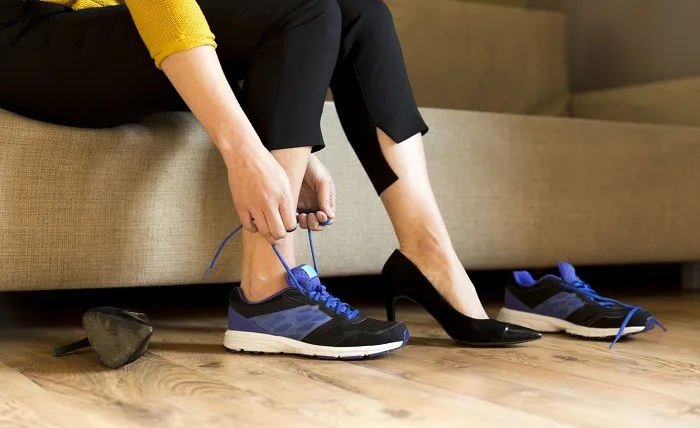Proper footwear is an important part of maintaining good health and preventing issues like back pain, poor posture, and foot problems. With so many options available, it can be challenging to find the right shoes for your unique needs. This guide will explore how the right footwear can improve health and prevent problems.
Factors to Consider When Choosing Shoes
When selecting shoes, there are several key factors to take into account:
Style and Use
Consider when and how you will be using the shoes. Athletic shoes for exercise provide different benefits than dress shoes for work. Make sure to choose a style suited to the activity.
To comprehend the impact of footwear on health, learn about claw toe and its remedies for improved foot function on Gatsby Shoes’ blog.
Size and Fit
It’s crucial to find the correct shoe size for your feet. Poorly fitting shoes can cause rubbing, pinching, and discomfort. Leave a little room in the toe box for feet to spread out while walking or running.
Cushioning and Support
Proper cushioning and arch support help absorb impact and reduce strain. Those with high arches or plantar fasciitis may need shoes with ample cushioning. Extra stability is key for pronation or supination issues.
Breathability
Breathable shoes with mesh uppers or perforations allow airflow to keep feet cool and dry. This helps avoid conditions like athlete’s foot.
Durability
Durable shoe materials stand up well to frequent use. Leather, nylon, and high-quality synthetics tend to offer better longevity than shoes made with cheap materials.
How Footwear Impacts Overall Health
Wearing improper footwear or shoes that lack support can contribute to a surprising array of health problems.
Back and Neck Pain
Ill-fitting shoes that fail to stabilize and support feet properly can cause poor alignment of the back and neck. This extra strain over time can result in chronic back or neck aches.
Postural Changes
Shoes without proper arch support can lead to overpronation, causing the feet to roll excessively inward. This disrupts proper postural alignment and puts added pressure on joints.
Circulation and Swelling
Tight shoes that constrict feet can impair circulation, leading to swelling, varicose veins, and other vascular issues like Utah vein specialists. Choose shoes with a roomy toe box.
Bunions and Corns
Narrow, pointed shoes with inadequate space can cause bunions, corns, and calluses from constant friction and pressure. Wider toe boxes reduce irritation.
Pelvic Rotation
Leg length discrepancies from poor foot support rotate the pelvis, straining the hips and low back. Stable shoes help keep the pelvis level.
Plantar Fasciitis
Insufficient arch support places more pressure on the plantar fascia ligament in the foot’s arch, resulting in inflammation and pain.
Arthritis Progression
Unstable shoes that fail to absorb impact during walking or running accelerate joint degeneration in the knees, hips, and ankles.
Tips for Finding the Right Shoes
Here are some top tips for choosing shoes that promote foot health:
- Shop later in the day when feet are swollen to their largest size
- Bring any custom orthotics or inserts when trying on shoes
- Walk around the store to test out cushioning and support
- Examine wear patterns on old shoes to identify needs
- Allow a half inch between longest toe and shoe tip
- Ensure heels don’t slip up and down when walking
- Replace shoes every 300-500 miles for athletic shoes
Conclusion
Paying attention to proper footwear has profound implications for posture, joint health, circulation, and avoiding pain. Take the time to explore different shoe styles and brands to find ones that offer optimal comfort and support. Don’t ignore foot pain caused by poor fitting shoes. Consulting a podiatrist can help diagnose underlying issues that shoes may help correct. By selecting appropriate footwear for your activities, you invest in your overall health and well-being.



